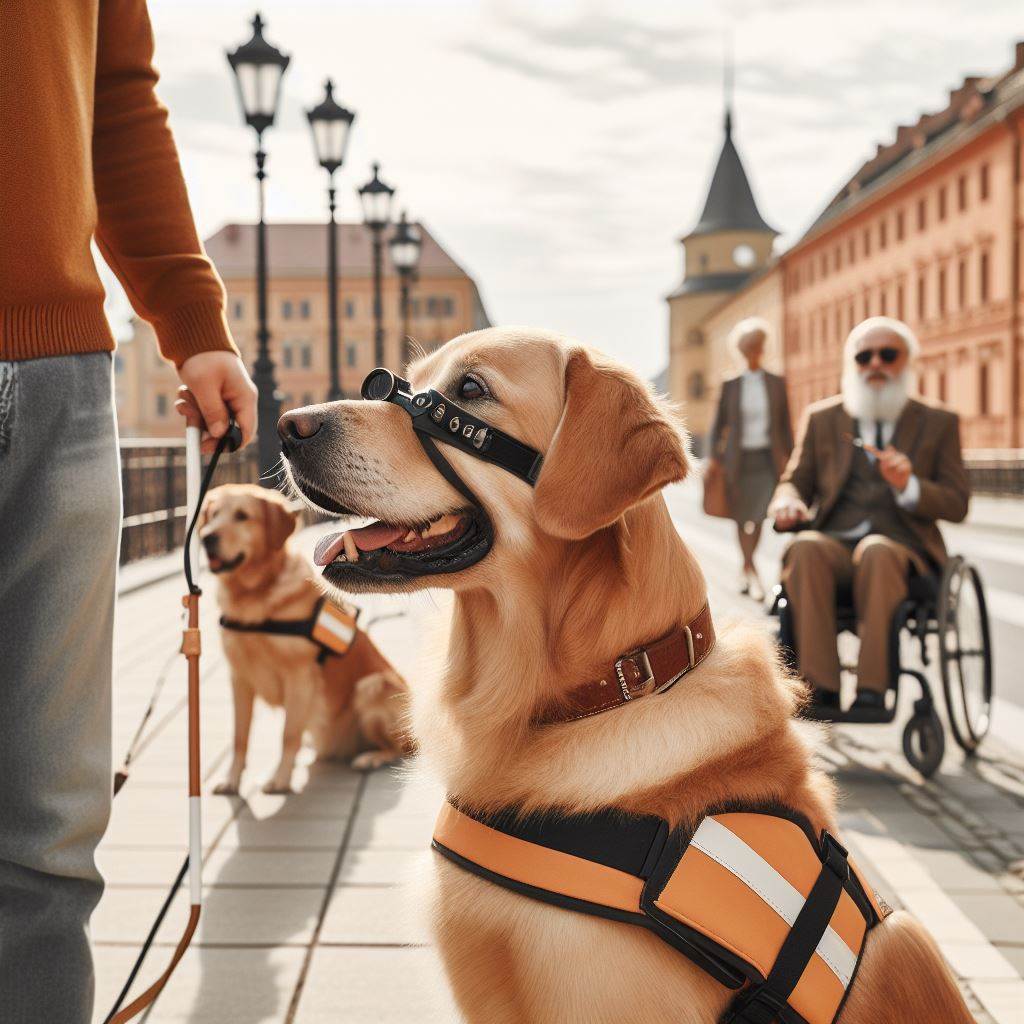In the bustling streets of modern cities, the sight of a guide dog leading a visually impaired person is not uncommon. These dogs are trained to navigate obstacles, ensuring the safety of their handlers. But what happens when the handler is a Muslim? The question arises because, in Islam, there are certain restrictions regarding dogs. So, can a blind Muslim have a guide dog? Let’s delve into this topic.
Understanding the Islamic Perspective on Dogs

In Islam, dogs are generally seen as impure, and their saliva is considered unclean1. This belief stems from various Hadiths, sayings and actions of Prophet Muhammad (peace be upon him). However, there are exceptions to this rule. For instance, dogs used for hunting, herding, and guarding are permissible1.
The Role of Guide Dogs

Guide dogs play an essential role in assisting visually impaired individuals. They help their handlers navigate through public spaces, avoid obstacles, and even alert them to potential dangers. In many ways, these dogs provide a level of independence that might be difficult to achieve otherwise.
The Intersection of Faith and Necessity
The question of whether a blind Muslim can have a guide dog is where faith intersects with necessity. According to Sheikh `Abdul-Majeed Subh, a prominent Al-scholar from Azhar, owning a guide dog for the blind is permissible1. This view is based on the understanding that dogs used for legitimate benefits, such as guiding the blind, are allowed1.
Real-Life Examples
A real-life example of this intersection is the story of Mahomed-Abraar Khatri, a blind Muslim student in the UK. He became the first person to be allowed to take a guide dog into a UK mosque2. This was possible after the Muslim Law (Sharia) Council UK issued a fatwa in response to his request2.
The Conditions for Having a Guide Dog
While it is permissible for a blind Muslim to have a guide dog, there are conditions attached. The dog should not be allowed inside the prayer hall. It can be kept in a kennel outside the prayer hall1. This arrangement respects the views of those who consider dogs to be unclean, while also acknowledging the necessity of guide dogs for the visually impaired1.
Conclusion
In conclusion, while Islam has restrictions regarding dogs, the faith also recognizes the necessity of guide dogs for visually impaired individuals. Therefore, a blind Muslim can have a guide dog, provided certain conditions are met. This understanding showcases the flexibility within Islamic jurisprudence to accommodate the needs of its followers.
This topic is a testament to the adaptability of religious interpretations in the face of modern challenges. It underscores the importance of dialogue and understanding in addressing the diverse needs of a global community.


